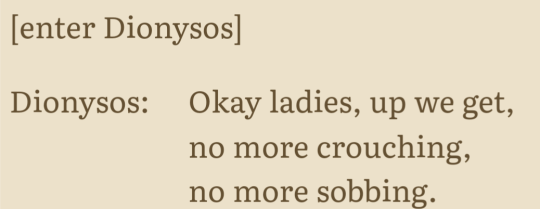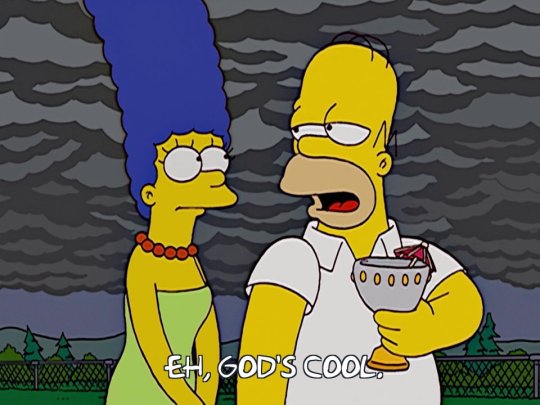#basically copied from osp's videos
Explore tagged Tumblr posts
Text
Important context: I know a lot of people on here are too young to remember this (and I wouldn't know if it weren't for my very nerdy parents) but grok was just kinda nerd slang for a while? Stranger in a Strange Land isn't all that obscure of a book, and a lot of Gen X nerds I know will just insert 'grok' into casual conversation as a way to indicate that they deeply and intuitively understand whatever you're talking about. I don't see it used as commonly by younger nerds, but it has its own existence as a slang term outside of the book itself. Calling it "that word from that one '70s book about a martian who founds a sex cult" is like calling the term ansible "that word from that one '60s book about an alien planet with sex churches" in that not only does it diminish the broader usage of the term, it also derogatorily emphasizes the erotic components of the novel in a way I find moralistic. It's fine to dislike the book or think Heinlein was weird, but I don't find the idea of ridiculing or critiquing books on the sole merit of "contains erotica" all that insightful. Nor do I think the erotic components are the most important part of Stranger in a Strange Land.
Basically, Musk chose to call the AI Grok because he was hoping to appeal to older nerds by invoking his own nerd street cred. It's like how Siri is programmed to respond to "I am your father," and a whole bunch of other random pop culture phrases; Silicon Valley tech bros want you to feel a sense of kinship and connection to them so that you'll continue to buy their products. This is not really a "Musk is a weird guy who reads weird books" moment, it's a "Musk wants your parents' money and approval, and so is spouting nerd culture references to get it" moment.
(Also I know this is off-topic, but please if you enjoy OSP, go read the books and myths and history they summarize for yourself. They exaggerate for comedic effect, but even outside of that, they're literally just two people and sometimes they get things wrong. I cannot tell you how many people I've met at classics conventions—usually kids—who parrot OSP jokes about The Aeneid back at me about how "Vergil stole everything from Homer." And I'm not the only one in academia who's had to give disclaimers at the start of certain classes that amount to "No, Rome did not 'copy' Greek mythology" because between OSP and Rick Riordan, that's the message a lot of people have gotten. I like them, and I like their videos, but if you're interested in the subjects they cover, please look into them on your own too. It's fun, I promise.)
so does anyone else realize that elon musk's new jerkoff image-creating AI is named after that word from that one 70s sci fi book about a martian who founds a sex cult or was i the only one who watched overly sarcastic religiously as a child
#dex rants#classics#sci-fi#brief tlhod mention#for full disclosure i was an osp kid but i kind of fell off the train because i started to notice mistakes in their content#the descent of ishtar video is particularly egregious but it's also one of their older ones so i mostly let it slide#except they keep referring to assinnu as “nonbinary people” in recent videos and that's just. not correct#they're good as an entry point and i still think they're fun to watch#but they're not particularly nuanced#that's nothing against them as people it's just kind of my academic beef. i am arrian vagueblogging at quintus curtius rufus#in my biography of alexander the great
91 notes
·
View notes
Note
You have any recommended reading for people interested in *gestures vaugely toward your beliefs/worship* ?
Boy do I! Most of the stuff I’m reading lately is more academically bent than theological, but academics seem prone to waxing very poetic about Dionysus. Also even outside of religion stuff, the absurd complexity of Dionysus/Dionysian cult is fascinating.
Non-Reading: Let’s Talk About Myths Baby Podcast: CXIV: Dionysus Is Everyone & Everything, Queer Theory with the Queer Classicist Yentl Love What it says in the title, a really cool chat using academic queer theory to explore the ways Dionysus was a very transgressive god in the ancient Greek pantheon, and how unusual it was that such a subversive figure was still a member of the Big 12 Olympians. I wouldn’t use it as a reference in and of itself (tbh there is ONE BIT I twitch at where Yentl references Nonnus but then also mentions that Dionysus doesnt have any sexual assault stories. Which applies to all his current known mythos...except for what Nonnus wrote.) OSP Productions: Dionysus Again, I wouldnt use it as a reference point, and as much as I enjoy their videos (minus some quibbles with the Hades/Persephone video), I do wish the OSP crew listed their sources for stuff. But this is still a great, easy watch that is like a 101 on Dionysus: Way More Than The Drunk Party Dude. It’s a nice intro jumping-off point. Also, the art is adorable. READING: Anne Carson’s Bakkhai You know all those Greek quotes that keep making the Tumblr Gays foam at the mouth? The “Not to me, not if it’s you” stuff? That’s Anne Carson. Her adaptation of The Bacchae is my favorite version of Euripedes’ play so far and tbh I just recommend it in general. It also has this wonderful line.

Richard Seaford - “Dionysos” (link to a copy of the book on google drive) “Dionysos exists in our own world, as an irreducible symbol for the antithesis of something basically wrong with our society. When we look at modern conceptions of Dionysos since Friedrich Nietzsche, we frequently find a Dionysos who embodies something that is beneath the surface of our society and somehow embodies a universal challenge to it. Are such conceptions mere abstractions, remote from the reality of the ancient Dionysos? To some extent they are, and yet not entirely – as we shall see in what follows.“ An extensive and broad ranged examination of Dionysus’ impact on ancient and modern culture. It’s a cool look into theories on ancient modes of worship, and explores some of the base themes of his worship through the centuries such as nature veneration, epiphanies, death/rebirth, community, theater, and even the tie-ins to early Christian cult. All without being as dry and full of untranslated Greek as a lot of other academic essays are. Eric Csapo “Riding the Phallus for Dionysus: Iconology, Ritual and Gender-Role De/construction,” - link to JStor article on google drive Tbh I’ve only just started reading this one but it hasn’t been too difficult to work through. Currently reading a bit that deep dives into the contrast between the sexual themes that surrounded Dionysus while the god himself was often less sexualized or even desexualized. Vikki Bramshaw: Dionysus: Exciter to Frenzy I had doubts about this book, written with a modern worship in mind, because the summary comes across as a bit “Source: it came to me in a dream” but I’ve been pleasantly surprised by the use of citations. I don’t take entirely with every conclusion Bramshaw comes to, but her work tying together all the various regions and modes of worship come to some neat theological conclusions. Redefining Dionysus - link to google doc This is almost 700 pages of essays and articles on Dionysus compiled together. I’m still working my way through in no particular order. There’s a lot of neat academic stuff, but there’s also some non-English essays and these are all essays written by Classicists for Classicists which means they all use untranslated Greek terms casually and it can get confusing. It can also get pretty damn dry so this is the Real Fuckin Deep Dive level. Havent Read, But On My List Walter F. Otto - Dionysus: Myth and Cult Written in the 60s so it’s got some outdated stuff, but this is the book I see Dionysian worshippers mention constantly, and even in the academic essays I see it mentioned with an air of “yes its outdated but it’s a CLASSIC” and seems to have been the entry point for a lot of classicists. Apparently he wrote so rapturously about Dionysus that he was accused of being a secret pagan.
22 notes
·
View notes
Note
hey, so i read pjo as a kid and that started me om being interested in studying mythology outside of those books, do you have any reading recommedations that aren’t written in like.. elaborate academia speak or if its something translated, isn’t written all... old-timey? if that makes sense? i find those things super difficult to read, like i tried to read the illiad and it sounds like gibberish to me, i can’t understand anything :( sorry if this makes absolutely no sense, and thank you sm
Mythology: Timeless Tales of Gods and Heroes by Edith Hamilton Happily! Note though that my area of focus is actually Sumerian/Akkadian mythology and that my actual credentials are in linguistics, so hopefully someone will add more resources in the notes. These are just ones I like from a linguistic perspective!
First and foremost being angry at translators is my specialty, so here’s some good translations (and a caveat that the penguin translations will never be easy to read). Getting into this you may have noticed that the translator matters a lot. I’ll do a better breakdown of why exactly eventually (because I’ve spent this entire year so far digging a hole into Gilgamesh and yelling about it to anyone who’ll listen to me) but the gist is that the time period and bias they come from influences how they write things. Some translations suck because they’re inaccurate, and the rhythm/line number translators choose is very important to some people. Me included.:
Emily Wilson’s translation of The Odyssey (her forward is also worth reading, she really throws down)
Nicholas Rudal’s translations of greek plays use modern language and I appreciated them a lot as a student with ADHD
If you wanna give the Iliad another try, I’ve also used Caroline Alexander’s translation in my work. It’s very good! Richmond Lattimore’s translation is also supposed to be good but I can’t testify personally.
Richmond Lattimore also did a translation of Theogony, another important poem, although I’d shop around a bit more before settling on this one.
My personal copy of The Metamorphosis is translated by David R. Slavitt.
So on to collections I like. With the caviet that while the old joke of “the Romans said our OC do not steal” is a cool simple way to explain it to younger kids, that’s not exactly what happened. The Romans had a cool way of getting the locals on their side called “This is your god? No, No, this is OUR god, you just call it that. It’s actually named THIS” and that worked a couple dozen times and they conquered their way through the Mediterranean, which is why Aphrodite became Venus Genetrix (being equated with a war goddess and a mother of rome type persona) ect ect. Keeping that on mind will help when you come across irritated people. I don’t know shit else about Rome tho.
FIRST OF ALL if you want some of that good ass gay shit, here’s a collection of myths breaking down masculine love in ancient Greece
I’m contractually obligated to mention Mythology: Timeless Tales of Gods and Heroes by Edith Hamilton even though it was published in 1942. It’s just a good introduction, although she doesn’t linger on stories for that long.
Also this is gonna get me slapped, but if you want a simple example of how myths change over time and why there’s six different versions of everything, just watch this video which breaks down the evolution of Dionysus. Yes it’s osp. The name of the game is accessibility!
The Library of Greek Mythology by Apollodorus (otherwise known as the Bibliotheca) is the only mostly complete contemporary attempt we have of people trying to codify all these oral histories into one place. You’ll wanna shop around for a translation, but Robin Hard uses modern language and you might enjoy that version just fine.
And my last bit, Theoi.com, which is basically wikipedia just for world mythologies.
This is just an intro! The best myths and discourses aren’t usually in the big collections, so I encourage you to chase after your areas of interest instead of trying to find the one big comprehensive Book, because that Book with the capital B doesn’t exist. Patheons this old are huge, expansive, and contradictory, so it’s natural to feel overwhelmed. Start small! Hyperfixate! Have fun!! Please read some historical context.
#replies#messages from knave#greek mythology#mythology#resources#sources#myth#'what books for historical context knave' I'm not a historian I'm just here for the adjectives#greek myth#ancient greece#Hooded Figures
75 notes
·
View notes
Text
Greek mythology in a nutshell



#tantalus#niobe#sisyphus#bellerophon#acetaeon#narcissus#theseus#pirithous#arachne#midas#erysichthon#greek myth#greek myth memes#greek mythology#basically copied from osp's videos#incorrect greek mythology#greek gods
98K notes
·
View notes